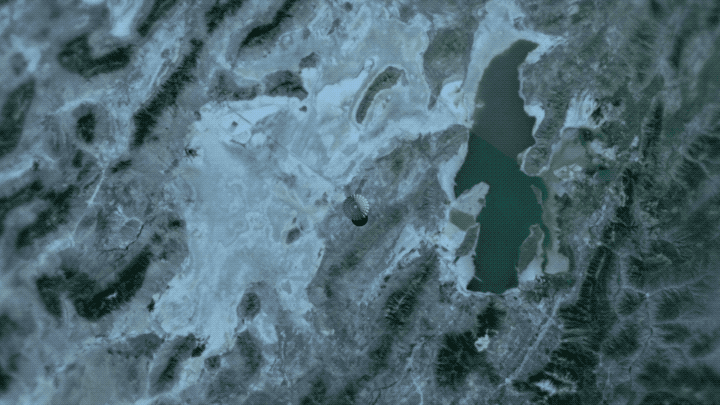Winners
Zade Akras, Vikash Modi
Grade 9-12

Contest:
2016-2017
Topic:
Titan's Lakes
School:
Hawken School, Gates Mills, OH
Teacher:
Chris Harrow
"Water is generally considered the benchmark for life. However, this norm is misleading. Liquid, not water, is imperative for life; scientists postulate that life needs a medium that can bring molecules close enough to interact while still allowing them to move. Liquid is the only stage of matter that satisfies both these requirements, and while water's polarity, liquid temperature range, and solubility make it especially useful, other liquids can be capable of sustaining life as well. Titan, Saturn's largest moon, is the only known celestial body beyond Earth with liquid lakes on its surface. Titan's lakes are the optimal target for study with the potential to reshape our understanding of life and its necessities altogether.
Thanks to the Huygens probe of the Cassini-Huygens mission, we know that Titan is remarkably Earth-like. It has a dense atmosphere more comparable to that of Earth than any other planet or moon in our solar system. Additionally, Titan experiences seasonal rains, which produce wet patches and lakes that are visible in Cassini's images. Titan also is home to water. However, at 90 Kelvin, the water on Titan's surface is rock-hard. Instead, Titan's precipitation and lakes are composed of liquid methane.
Titan's methane lakes present a unique opportunity in our galactic search for life. Methane life is unlike anything humans have ever seen. Chemical engineers and astronomers from Cornell University hypothesize that methane-based, oxygen-free beings on Titan could host completely different cell structures than those understood to date. Most cell structures on Earth are held together by phospholipid bilayers. However, methane-based cell membranes, referred to as "azotosomes," would be held together by the polarity of nitrogen groups. While Titan's low temperature could be a problem in the development of life, the presence of argon 40 isotopes in its atmosphere suggest that Titan has an active core, meaning it could still be warm enough for methanogenic life reactions. Moreover, researchers at the NASA Ames Research Center support this hypothesis, referencing the potential for life to adapt to the low temperature and solubility of organic compounds in liquid methane. Further study of Titan is necessary to confirm these premises. Finding life on Titan would be monumental, and discoveries on Titan could change the way we define and search for life altogether.
In our great search for extraterrestrial life, it's important to consider every possibility. While liquid water, like that of Earth, is certainly a strong indicator of potential life, liquid methane deserves ample study and observation as well. We will never know if life can exist without water unless we study other fluid samples, and the possibility of a completely new life form existing is fascinating. Studying Titan's hydrocarbon lakes can allow us to determine if water truly is the only liquid suitable for life. Even finding nothing on Titan would further our understanding of life, allowing us to specify and narrow our criteria for life's requirements. The extraordinary opportunity to enhance our understanding of life prompts the need for further study of Titan's methane lakes."
